Writing in Nichomachean Ethics in about 340 B.C. the philosopher Aristotle outlined his moral theory which was that evil is always a corruption of the good. He gave us the powerful aphorism, "The corruption of the best is the worst." This theory of good and evil was later to be taken up by Thomas Aquinas, who believed that evil was always a good that was used in a disordered way, perverted from its true purpose. The implications for religion are serious and profound. Just as religion is capable of great good, it can also be responsible for great evil. Moreover, just as religious ministers are persons who must work for the highest good, the perversion of their ministry serves the cause of evil. I strongly believe that this principle should be applied to an analysis of the problems facing Catholicism at the present time.
The three great values are the True, the Good and the Beautiful, and Catholicism seeks them in God. You can sense something of the spirit of a religion from its art and music. Catholicism has produced the exquisite heavenly music of Gregorian plain chant, and the art that has flowed from the Catholic faith's inspiration is glorious. There are also great works of charity performed by the church. In many parts of the world the church is the prime provider of health care and education, and anti-slavery work is ongoing. Furthermore, the Catholic Church is counter-cultural. If it thinks that the spirit or ideas of the times are wrong, it will oppose them, no matter what the pressure is. For the church truth matters. There are many Catholics living lives of personal holiness, and conducting their personal relationships according to high and demanding moral standards. The Catholic Church has always produced great saints. Moreover, it has produced people of great scholarship, not only in religious thought, but in all other disciplines, including science, philosophy and history.
But as we know only too well, lurking within the institution and community there have been individuals, some of them in office, at times high ranking, who have seriously misused power and done grave harm to others and the Church, causing scandal and damaging the church's mission to do good in the world. The only possible word to describe those who sully the church's mission is to say that they do evil. Secular thinkers eschew the word evil as non-scientific, but when humans confront some levels and forms of moral wrongdoing, the enormity of what has been done demands that a special term be used, and that in agreed parlance is evil.
Christians disagree among themselves about the existence of power of evil operating in the world against God, but such a being would be working against the church, instigating persecution from the outside and corruption as an attack from the inside. This is what seems to be happening in the world today: Christians suffer attacks for their faith, such as the recent bombings in Sri Lanka, but individuals within the church are sometimes corrupt and misuse their office to the detriment of all.



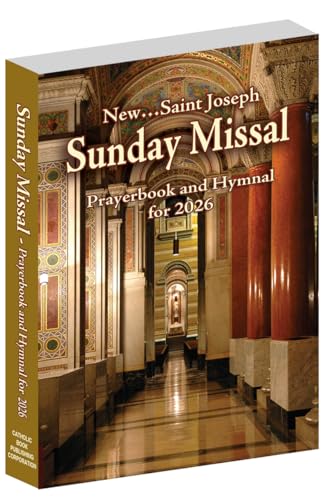




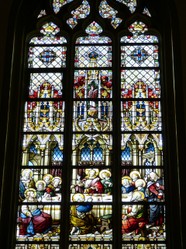

 TheThousand Year Gardenon 11/26/2025
TheThousand Year Gardenon 11/26/2025
 Women of the Gospelson 10/11/2025
Women of the Gospelson 10/11/2025
 Religious Gardenson 08/25/2025
Religious Gardenson 08/25/2025
 Doctor of the Church: John Henry Newmanon 08/03/2025
Doctor of the Church: John Henry Newmanon 08/03/2025

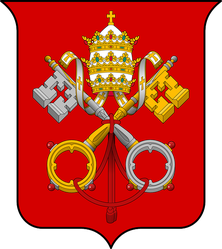
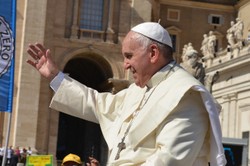
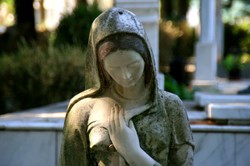
Comments
It has a broadvreference, I think
Thank you for your comment below in answer to my previous observations and question.
The last paragraph advises us that "In conclusion I will quote "Sancta ecclesia semper reformanda" which translated from Latin means "Holy church always to be reformed."
Does the word "revisada" ("reformed") defer to revision alone or revision and reorganization together or reorganization alone?
Absolutely right.
Thank you for your comment below in answer to my previous, same-day observations and questions.
That's interesting about the heaven and hell commonality of inhabitants not notioning themselves as where "they deserve to be"!
That thinking perhaps occurs humbly in heaven and perhaps self-delusionally in hell, correct?
Saints never regardbthemselves saints. I suspect that heaven and he'll have one thing in common. They are both inhabited by people who don't think they deserve to be there
Thank you for your comment below in answer to my previous, same-day observation and question.
An honor awarded quickly after the honoree's death perhaps suggests said honoree suspecting the posthumous honor.
Would that be the case with Doctor of the Church, that it would be no surprise to that person alive and in fact to colleagues and non-peers?
It would be comforting to wend one's way into death with such a welcome honor and with the knowledge, in actress Sally Field's words, that "You like me!"
The title is not a formal academic degree, but is. an ,honour given to people whom have made great contributions to Christian thought.it is awarded after death.
Thank you for your comment below on April 27, 2019.
Doctor of the Church sounds like an impressive title.
Would it be considered an actual degree for training and work done or an honorary degree?
Henry was never a doctor of the church. But he was given the title of Defender of the Faith. The British monarchs use this title still, and you can see it on British coins.
Doctor of the Church is a title only awarded after death.
The holier the person, the worse the temptations. You are right about hermits, and we can see the terrible temptations that Christ suffered when the Devil threw everything at him in the wilderness.
Henry was never truly holy, his book on the sacraments was probably written or dictated by Thomas More. Henry sought glory by making unjust war against France and he was a serial adulterer. He was always an evildoer.